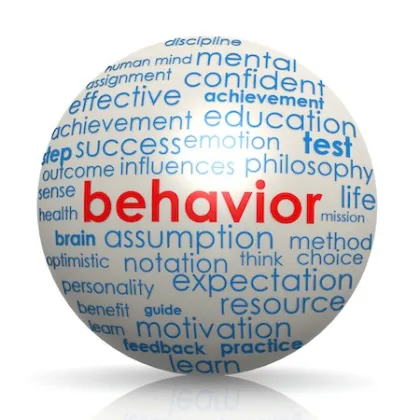Simon students transform Big Data into strategic insights

Simon students transform Big Data into strategic insights
August 25, 2023 | By Katie Mulheron
It’s a fact—today, business runs on Big Data. The challenge for businesses is finding talent that can turn data into fresh insights and smart strategy. That’s why Simon’s Master of Science in Business Analytics program focuses on giving students the ability to see and communicate data differently.
This Q&A contains insights from Katie Mulheron, a director and career consultant supporting Simon’s MS Business Analytics program. She shares more about how Simon MSBA graduates are ready to use Big Data to frame more incisive questions, uncover patterns, and use data to persuade and inspire.
How has the rise of Big Data impacted the business landscape, and what skills do you believe are essential for graduate students to succeed in this evolving field?
With business constantly evolving, companies are required to use the large data sets available to them to make decisions, engage with customers, and operate efficiently and effectively. Employers require all employees, not just those entering analytics functions, to make data-driven decisions.
Easy access to this data allows companies to identify trends, patterns, and insights that were previously hidden. For example, product and marketing teams now have stronger visibility to target audiences, purchase behaviors, and product preferences.
This allows them to tailor products and services to enhance the customer experience and increase customer loyalty. From an operations view point, Big Data can also help companies optimize their supply chains and resource allocations to reduce costs and improved efficiency.
There are several skills that graduate students continuously learn and refine to ensure they are successful in data-driven decision-making roles. A few standouts (in no particular order):
- Programming: whether it’s Python, R, or SQL, these set the foundation for data manipulation and analysis.
- Data Management: with large amounts of data comes advanced processes to ensure cleansing and storage maintains the highest quality and integrity.
- Data Visualization: transforming data into real-time dashboards with drill down functionality allows teams to track success towards specific KPIs or metrics. Tools like Tableau, PowerBi, and Looker help bring the story to life.
- Communication: it’s imperative to be able to explain complex problems and technical insights to non-technical audiences. This guarantees all stakeholders understand the data-driven insights being shared with them and appropriate action is taken.
- Business Acumen: visibility, understanding, and alignment on a company’s objectives and goals is table stakes. This sets the stage for data professionals to be at a place where they participate in strategic discussions like finding new revenue streams, optimizing processes, identifying risks early on and mitigate threats.
- Problem Solving & Critical Thinking: graduate students preparing to enter the workforce will be required to evaluate, adapt, and exhaust all possible alternatives before arriving at and recommending an optimal solution.
Could you share some specific examples of how Simon integrates Big Data concepts into its curriculum to provide students with practical knowledge and experience?
Simon is known for its rigorous STEM certified and quantitative curriculums. That certainly holds true across all MS programs, especially our Business Analytics program. From theories to practical application, Big Data concepts are embedded into all core and elective offerings.
In the fall semester, MSBA students start off their journey learning about economic principles, relational databases, writing and executing SQL queries, techniques to interpret and refine objectives, how to operate with ambiguity, and communicate through impactful presentations. As the program progresses into spring semester, the focus becomes advanced analytics (predictive, perspective, textual and, of course, a student favorite, elective Big Data).
Each course has individual and team-based assignments where students not only get to practice technical concepts, but they are challenged to problem solve and critically think. These assignments and final projects give students real-world examples to include on their resume, infuse into engaging networking conversations with industry experts, and deliver robust and powerful interview stories.
In a rapidly changing technological environment, what strategies does Simon employ to ensure that students are not only exposed to current Big Data tools but also equipped to adapt to future advancements in data analytics?
With generative AI tools like ChatGPT, Bard, Dall-e rising towards the forefront of minds, there is always the question of what this means for business and business education. As Senior Associate Dean of Education and Innovation Mitch Lovett shared in his recent Quick Takes webinar, “It’s our job within the Simon faculty and staff community to ensure we understand the new fundamental knowledge students must know to master coursework and how we are effectively preparing students to problem solve in combination with AI tools.”
Here at Simon, we are fully embracing AI. In partnership with hiring teams, industry experts, and faculty there are on-going conversations across all programs of what enhancements need to be made to core curriculum, lessons/assignments, how we help students understand what AI can do as well as understand risks and limitations. I’m excited to be in this space and seeing where we will innovate to meet the demands of the rapidly changing landscape.
Industry collaboration is often crucial for staying up to date in fields like Big Data. Can you discuss any partnerships or initiatives Simon has undertaken to bridge the gap between academia and real-world business applications in this domain?
Coming from industry and transitioning to academia, it’s been a personal passion of mine to bridge the gap between employer expectations and knowledge gained through graduate coursework. As I think about some of my work in the Benet Career Management Center, I get the ability to engage with alumni, recruiters, hiring managers across a variety of industries throughout the year.
The insights shared in one-on-ones, roundtable discussions, and advisory boards have been centered around critical skills and how roles are evolving with the use of AI and are brought back to our MS program directors to help influence curriculum evolution. This is only one piece of the puzzle though. Our experiential learning team in the Ainslie Office of Student Engagement does an excellent job immersing students into case competitions to support hands-on application.
Last year, more than 240 Simon students participated in 32 case competitions. These case competitions allow students to analyze a real business challenge, take on leadership decision making roles, and present to senior leaders at companies worldwide.
Ethics and responsible use of data are important considerations in the age of Big Data. How does Simon’s program address these ethical concerns and equip students with the knowledge to make ethical decisions while working with large datasets?
There is consistent emphasis on ethical guardrails throughout every step of the data lifecycle. Students are empowered to think about potential business decisions and their real-world outcomes.
In advanced coursework, positive impacts of predictive models are discussed. However, there are many ethical dilemmas that also arise during the discussions. For example, if a student was working with a healthcare company, they may be asked to create a predictive model to forecast which patients are most likely to benefit from a life-saving treatment that has limited supply.
The model might consider features like age and underlying health conditions. If the created model favors young and healthier individuals, ethical dilemmas will begin to arise. In combination with their business acumen skills and their coursework foundation, they will understand how to adjust, fine-tune, and know when it’s ideal to blend human judgement alongside their model.
To connect with qualified MSBA graduates who know Big Data, contact MSBA Director Katie Mulheron at kmulhero@simon.rochester.edu.

Katie Mulheron is the Master of Science in Business Analytics Director at Simon Business School.
To view other blogs in this series visit the Talent Connect Main Page











